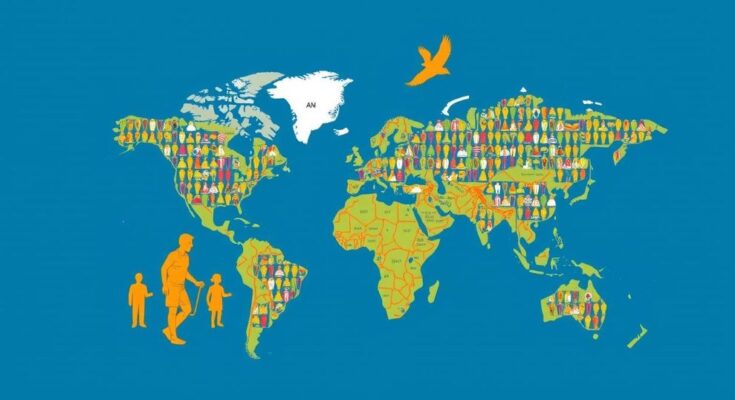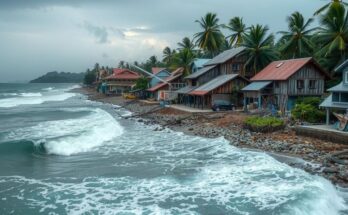The ‘Climate Action 4 Refugees’ initiative, a collaboration between Spotify, Coldplay, FC Barcelona, the FC Barcelona Foundation, and UNHCR, seeks to plant trees in Ugandan refugee settlements, addressing the challenges posed by climate change and supporting sustainable building materials through innovative solutions led by young refugees. This effort is crucial in providing both immediate assistance and long-term resilience for displaced populations and their host communities dealing with environmental crises.
The climate crisis significantly impacts refugees and internally displaced individuals, exacerbating their precarious circumstances as well as those of host communities. In response to this urgent situation, a collaborative initiative involving Spotify, Coldplay, FC Barcelona, the FC Barcelona Foundation, and UNHCR has been launched. This partnership aims to plant trees in Ugandan settlements accommodating refugees and their host communities, thereby promoting reforestation in areas severely affected by climate fluctuations, particularly extreme droughts. Additionally, the initiative fosters innovative solutions led by young refugees who aim to tackle the dual challenges of plastic waste and the need for sustainable construction materials. They will collect discarded plastics to create durable, environmentally friendly tiles. Since 2022, FC Barcelona and UNHCR have acknowledged the transformative potential of sports in improving lives, and they have worked jointly to implement sport-for-protection programs for displaced populations, including refugee youth in various countries such as Colombia, Malaysia, Türkiye, El Salvador, and Uganda. Uganda itself is beset by significant vulnerabilities linked to climate change, manifesting as unpredictable rainfall, regular droughts, flooding, and seasonal forest fires. Such climate-related challenges further complicate agricultural planning and exacerbate food insecurity. Currently, Uganda hosts over 1.7 million refugees from countries such as South Sudan, the Democratic Republic of Congo, Burundi, and Somalia. These individuals, having fled conflict, are particularly susceptible to the adverse effects of climate change. The interplay between climate-induced adversities and forced displacement strains resources, heightens tensions, and complicates the provision of adequate protections and assistance for both refugees and the communities that host them. UNHCR works to coordinate and promote actionable climate responses for refugees, collaborating with various partners and the private sector to address pressing refugee needs, while simultaneously fostering long-term improvements that enhance vital services and diminish reliance on humanitarian aid. This comprehensive approach strengthens communities against the challenges posed by climate change, preparing them for future resilience.
The intersection of climate change and forced displacement represents a critical challenge globally, particularly in areas like Uganda, which faces significant threats from climate variability and displacement crises. As one of the countries hosting a substantial number of refugees, Uganda’s environmental instability complicates ongoing humanitarian efforts and resource management. With over 1.7 million refugees currently residing in Uganda due to conflicts in neighboring nations, the urgency of integrating climate action into refugee support initiatives cannot be overstated. Innovative approaches, such as tree planting and recycling initiatives, are essential for mitigating the severe impacts of climate crises on displaced populations and their hosts during times of deepening environmental challenges.
The initiative dubbed ‘Climate Action 4 Refugees’ represents a commendable effort to address the dual adversities of climate change and forced displacement. Through the collaborative actions of prestigious organizations, this project seeks to restore degraded environments and empower refugee youths with sustainable solutions while aiding both refugees and their host communities in Uganda. By promoting reforestation and tackling plastic waste, the initiative not only offers immediate environmental benefits but also lays a foundation for long-term resilience against future climate challenges.
Original Source: www.unhcr.org




